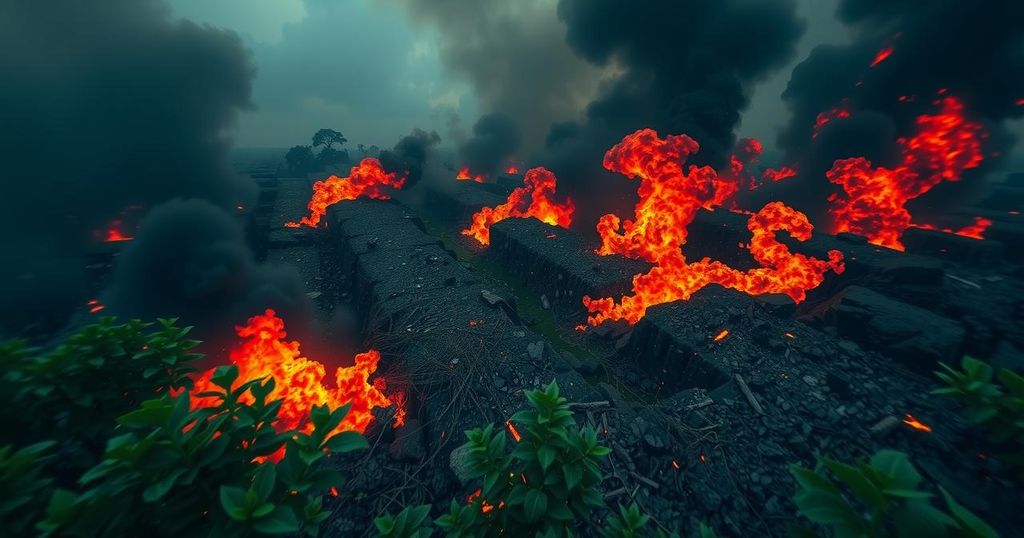Renewed Hostilities Erupt in Eastern Congo Amid Ceasefire Violations

Fighting resumed in Eastern Congo, violating a ceasefire, as the M23 rebel group and the Congolese army provided confirmations. The M23 has engaged in renewed hostilities since 2022, with accusations of Rwandan support. Some Rwandan troops remain active in Eastern Congo. A meeting between the Congolese and Rwandan presidents is planned for December 15 to discuss ongoing tensions.
Fighting has recommenced in Eastern Congo, disrupting a ceasefire, as confirmed by both the M23 rebel faction and the Congolese army. This resurgence casts doubt on the M23’s commitment to halt its offensive following the withdrawal of Rwandan military forces. The M23, a Tutsi-led group, has intensified its insurgency in the region since 2022, with accusations from Congo and the United Nations of Rwandan support—claims that the Rwandan government has refuted. Notably, U.N. experts reported in July that Rwandan troops are present in the area, estimated to number between 3,000 and 4,000, operating in conjunction with the M23. Following discussions on disengagement terms held on November 25 between the foreign ministers of both nations, M23 acknowledged the renewal of hostilities. The Congolese and Rwandan presidents are scheduled to meet on December 15, marking their first official engagement since 2023, as mediated by Angola. While the M23 reaffirmed its adherence to the ceasefire established in March 2023, they were not part of the negotiations between Rwanda and Congo, indicating ongoing tensions. The United States has expressed significant concern regarding the violations of the ceasefire in Eastern Congo by M23 forces.
The situation in Eastern Congo has been volatile, marked by a complex interplay of local insurgencies and regional politics involving Rwanda. The M23 rebel group has resurged since 2022, with allegations of Rwandan military support exacerbating the conflict. The relationship between the Democratic Republic of Congo and Rwanda remains strained, particularly due to the historical context of conflict in the region, including issues of ethnic tensions and territorial disputes. The involvement of external military forces and ongoing dialogue between the two countries reflects the challenging dynamics that influence peace efforts and conflict resolution in this area. Additionally, international actors such as the United Nations and the United States continue to engage in monitoring and assessing the situation, highlighting the significance of diplomatic dialogues to resolve violent engagements.
The resumption of conflict in Eastern Congo, despite previous agreements and ceasefire declarations, underscores the fragility of peace in the region. The M23’s renewed offensive, combined with the involvement of Rwandan forces, complicates the ongoing negotiations between Congo and Rwanda. As international stakeholders express serious concern and seek resolutions, the upcoming presidential meeting holds critical implications for addressing the violence and stabilizing the situation. The complexities of regional power dynamics and ethnic tensions remain central to understanding the ongoing unrest.
Original Source: www.usnews.com








